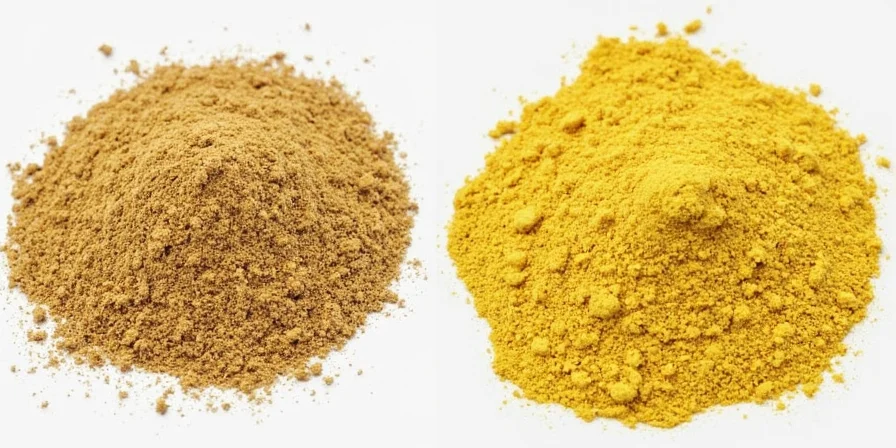Is Ginger Powder and Ground Ginger the Same?
If you've ever stared at your spice rack trying to figure out whether ginger powder and ground ginger are interchangeable, you're not alone. It's a question that has sparked confusion in kitchens from Tokyo to Texas. Today, we're peeling back the layers of this culinary mystery with a blend of science, kitchen wisdom, and just a pinch of humor.
Table of Contents
- The Great Debate: What’s the Difference?
- How Are They Used Differently?
- Substitution Secrets
- Which Should You Buy?
- Fun Facts & Flavor Tips
- Conclusion: Spice Up Your Life!
The Great Debate: What’s the Difference?
You may think this is like asking if ketchup and catsup are different — but hold on! Let’s break it down:
| Term | Definition | Source | Texture | Flavor Profile |
|---|---|---|---|---|
| Ginger Powder | Pure dried ginger root, ground into fine powder | Whole dried ginger rhizomes | Fine, silky texture | Bold, warm, slightly spicy |
| Ground Ginger | Can refer to ginger powder OR a mix of spices including ginger (e.g., in “gingersnap” recipes) | Varies – can include other spices | Varies – usually similar to ginger powder | Can be spicier or more complex due to blends |
In short: ginger powder is usually just ginger, while ground ginger might be ginger alone — or a sneaky blend hiding under the label.
How Are They Used Differently?
Context is key when deciding which one to use. Here's a handy breakdown:
- Baking: Recipes calling for “ground ginger” often expect a pre-mixed spice blend (like in gingerbread or gingersnaps). If your recipe specifically lists “ginger powder,” go with pure powdered ginger.
- Cooking: In savory dishes like stir-fries or soups, both terms are typically used interchangeably. Just make sure your “ground ginger” isn’t mixed with anything else.
- Teas & Tonics: Use ginger powder for a clean, zesty kick. Avoid blended versions unless you want a surprise flavor combo.
Substitution Secrets
If you’re mid-recipe and realize you grabbed the wrong jar, don't panic! Here's how to swap them:
- Use ginger powder instead of ground ginger: Works perfectly if you know the ground version is pure ginger. Just match the amount called for.
- Use ground ginger instead of ginger powder: Only do this if you're certain it's 100% ginger. If it's a spice blend, taste before adding more.
- Want a fresher kick? Substitute 1 tsp of powder with 1 tbsp freshly grated ginger — but adjust liquids accordingly!
Which Should You Buy?
Here’s how to make the best choice for your pantry:
- Buy Ginger Powder if:
- You want pure, single-source flavor
- You use it in teas, smoothies, or health-focused recipes
- You like knowing exactly what goes into your food
- Buy Ground Ginger if:
- You bake gingerbread or spiced cookies often
- The label says it’s 100% ginger
- You're okay with slight variations in flavor
Fun Facts & Flavor Tips
- Ginger contains over 100 bioactive compounds! The main one responsible for its punch is gingerol.
- Store both types in a cool, dark place to preserve potency for up to 2 years.
- To enhance flavor, toast ginger powder lightly in a dry pan before using.
- Ginger pairs surprisingly well with citrus, mint, and even chocolate!
- A little goes a long way — start with half the amount and adjust to taste.

Conclusion: Spice Up Your Life!
So, is ginger powder and ground ginger the same? It depends! If both are pure ginger, then yes — they're essentially twins separated at the spice shelf. But if one is part of a blend, you’ve got a culinary wildcard on your hands.
Now that you’re armed with knowledge, flavor confidence, and a few fun facts, go forth and season boldly. Whether you're baking gingerbread men or spicing up your morning tea, you’ll know exactly which jar to reach for.
And remember — life is too short for bland food and confusing spice labels!










 浙公网安备
33010002000092号
浙公网安备
33010002000092号 浙B2-20120091-4
浙B2-20120091-4